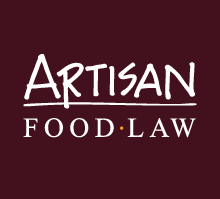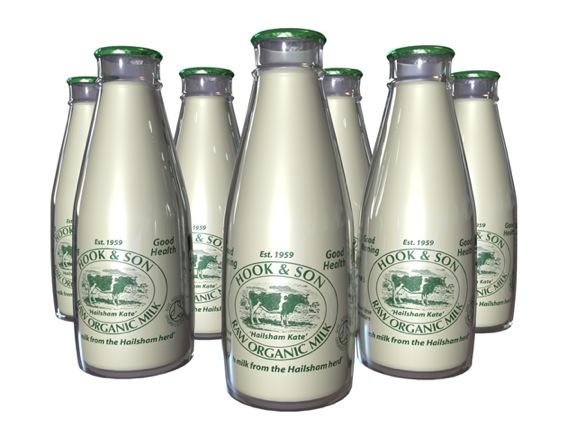The future of raw drinking milk hangs in the balance
Watching the Board of the Food Standards Agency (FSA) discuss the Microbiological Safety of Raw Drinking Milk (as agenda item 4.2 was titled) and the proposed review of controls at its meeting last month was really rather depressing and the outcome entirely predictable.
The tone of the meeting was set when Tim Smith, Chief Executive of the FSA, declared an interest as CEO of Arla Foods UK plc prior to his appointment at the FSA stating: “(M)y views on the sale and consumption of raw milk are a matter of public record.” He did not say what those views were, I googled them but couldn’t find them, but I can't help but think it is probably safe to conclude that he is no supporter of the availability of raw milk to say the least. The interest declared, he did not feel it prudent to leave the meeting, as would have happened in most public bodies, which afforded him the opportunity of a light hearted exchange with Jeff Rooker, Chair of the Board, at the end of the discussion.
Alison Gleadle, Director of Food Safety, presented her report and quite fairly made it clear at the start that there had been “no reported illnesses associated with raw drinking milk or cream in the UK for around 10 years.”
The present system of controls and background to the review were covered by Artisan Food Law in the run-up to the FSA Board meeting. There are two issues in particular that appear to have prompted the review – a raw milk vending machine in Selfridges department store and online internet sales of raw milk. Both are under the control of the farmer producer providing the milk so it is difficult to see what practical issues arise. Certainly no more than those with the milkman who can provide, and for many years in some areas has done so, overnight doorstep deliveries of raw milk.
Against this background, I have rarely observed so many members of a public body come to a conclusion before public consultation has even been launched. A few comments during the discussion:
“(I) made my mind up before reading it (the Director of Food Safety’s report to the meeting) that I was going to go with the idea that pasteurisation was by far the best.”
“I would look for a ban on the sale of raw milk.”
“I totally agree that pasteurisation has to be the way forward.”
Does this sound to you like a group of people intent on meaningful public consultation with an open mind? One member of the Board had even made up his mind before reading the Director’s report, never mind the public consultation! In fairness, the odd comment was made that tried to put things into some sort of more rational perspective:
“I’m not sure we should be overly worried and be bothering because I can’t see there’s a problem.”
One member did also rather tentatively raise an alternative view, pointing out there was nothing about sustainability in the report, which I took to mean diversity in food supply, and another, although somewhat patronisingly, referred to drinking raw milk as a cultural issue for “the farmers on the small farms who have done it for centuries.”
What were frequently referred to as the “inherent risks” of raw milk were never balanced by a single word about the possible benefits. Almost every conceivable activity on the planet carries inherent risks, the responsible way forward is to put in place prudent measures to manage those risks, which is what we have already. Crossing the road carries a risk but we have yet, for very good reason, to ban crossing the road.
The FSA must recognise its responsibility to protect consumer interests outside of the very narrow and blinkered approach it appears to be taking. It must take heed of issues of sustainability, diversity and community in place of the pursuit of sterile purity. If it continues down this road it will end up giving the regulation of food quality the same poor public image that the Health and Safety Executive managed to achieve, resulting in press reports of cutting down conker trees because the conkers may fall on your head and other daft stories. These may, for the most part, have proved to be myths but they reflected a widely held public view. If this happened to the FSA it will only serve to undermine the credibility of an otherwise important and essential body.
Finally, if raw drinking milk is lost, next in the frame will be cheese made from raw milk. Take note of Jeff Rooker, Chair of the FSA, in his closing remarks in the discussion:
“We know to our certain knowledge last year some farmers criminally switched ear tags from TB infected cattle so those cattle continued to put milk into the food chain and they sent other cattle to slaughter. Now I accept that milk in the normal course of events would have been pasteurised, but what if that milk had been had been supplied to cheese makers making cheese from unpasteurised milk?”
The FSA drew attention to this problem in March last year but raw milk production is subject to a much stricter control regime, this connection is misguided, but maybe it’s a case of raw drinking milk in the frame today, raw milk cheese tomorrow?
Some proposed changes may make sense. No one could sensibly argue that raw milk from different species should be treated differently. There ought to be appropriate safeguards in place for all raw milk, and if this is all about goats and sheep then it will prove to be the proverbial storm in a tea cup. The FSA should not, however, use this as an excuse for more far reaching change.
The members who questioned whether this review is a priority should have been heeded, focus on what really matters and makes a difference, harassing a 100 or so farmers trying to preserve a tradition that does no harm does the FSA no credit. How about making a real difference – put energy into addressing something worthwhile like, for example, cutting fat and salt in processed food to save an estimated 40,000 lives. Get the priorities right and use public money wisely.
Regrettably for now, the FSA gives no semblance of a group of people embarking on a public consultation with an open mind, raising fears the consultation will be a sham. It is almost impossible not to reach the conclusion that the FSA is simply trying to cover its back.
Oh yes, the light hearted exchange I mentioned at the outset. Jeff Rooker, Chair, quizzed those present if they knew why the statutory warning for raw milk did not refer to it not being ‘pasteurised’, nobody knew except Tim Smith who chuckled, kept it to himself, but indicated he would tell the Chair later, he had an interest after all, leaving us all to guess again.
It would have been hard to watch a more one-sided discussion, but don’t take it from me, you can watch the discussion for yourself. Meanwhile, drinkers and advocates of raw milk, and those who believe in the consumer’s right to choose should be very concerned.





